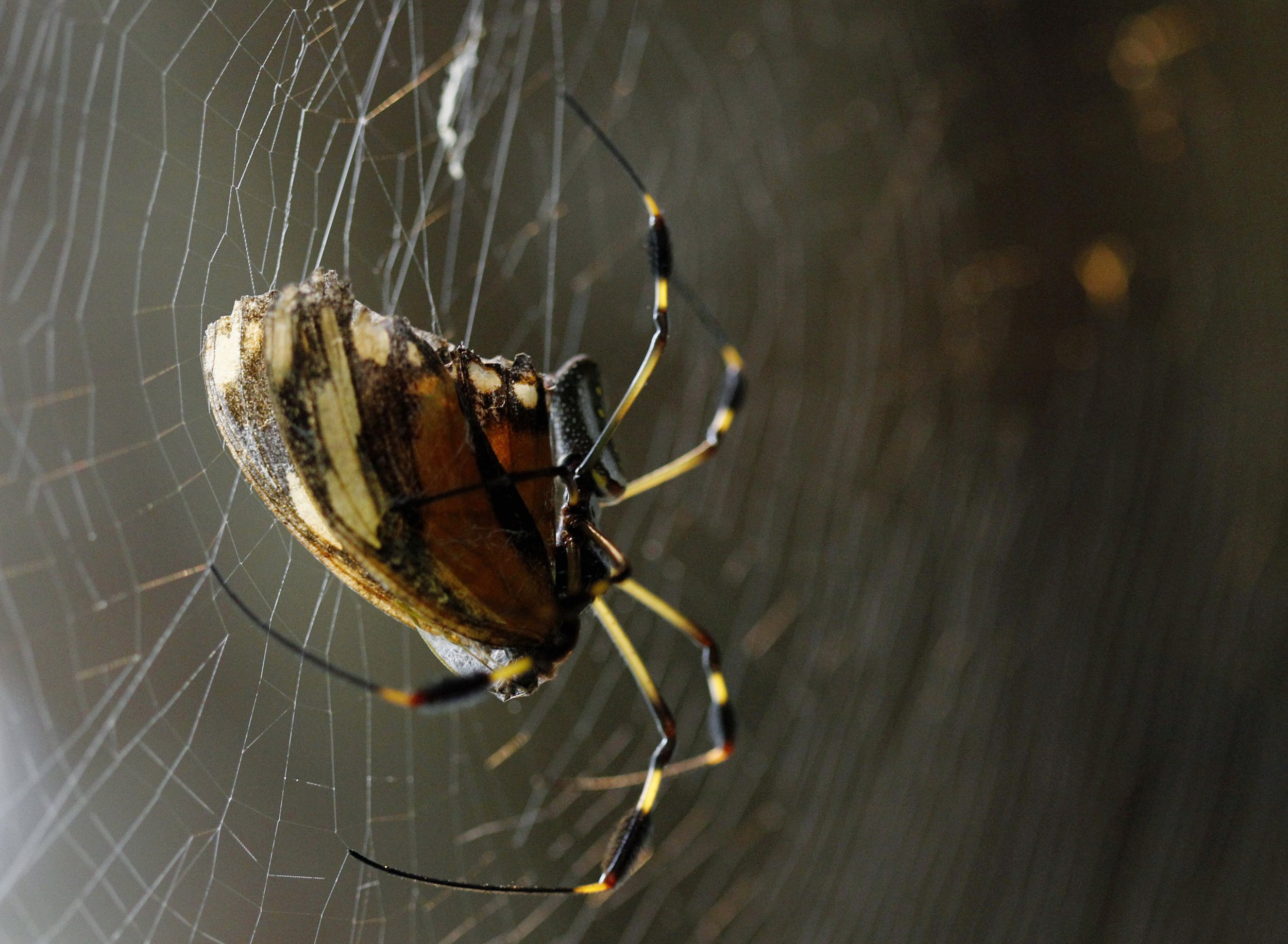
Your body knows that a day is 24 hours, and its circadian rhythm reflects that. You go to sleep at night—ideally around the same time every night—and wake up during the day. Orb-weaving spiders have internal clocks as well, but what's odd about them is that they don't seem to know that a day is 24 hours. They reset their clocks in much shorter time intervals.
At the Society for Neuroscience's annual meeting, researchers presented their findings regarding the circadian rhythms of orb-weaving spiders. They found that they have shorter circadian rhythms than any other animal ever studied.
There are 3,122 species of orb-weaving spider, although the researchers only studied 18 total spider species, three of which were orb-weavers. The other spider species had regular, 24-hour body clocks. But the orb-weavers' cycles were 17.4, 18.5 and 19 hours respectively, reports Science News. This means that the spiders become inactive at a different time every day, and aren't dependent on the rotation of the Earth to determine when they go about their business.
So far, no other animal has exhibited such an offbeat timing for their internal clocks. Animals, plants, fungi, and even bacteria adhere to the 24-hour cycle, also known as a circadian rhythm, 24-hour internal clock, or sleep-wake cycle. It's what keeps you awake during the day and asleep at night (and maybe drowsy at 2:30 p.m.) Or, if you work at night and sleep during the day, your body can become accustomed to that.
"Circadian clocks actually keep us from going into chaos," Darrell Moore, a neurobiologist at East Tennessee State University in Johnson City, told Science News. "Theoretically, [the spiders] should not exist."
Spiders don't have get up early to go to work per se, but they do have times of activity and inactivity. Animals have to go about their daily task of obtaining food, eating, avoiding predators, and occasionally mating. Orb-weavers often eat their own webs at the end of their day and then make a new one, so they don't have to deal with any debris that has built up. The various species are particularly colorful, and their name refers to the fact that their web is circular.
Uncommon Knowledge
Newsweek is committed to challenging conventional wisdom and finding connections in the search for common ground.
Newsweek is committed to challenging conventional wisdom and finding connections in the search for common ground.
About the writer
Kristin is a science journalist in New York who has lived in DC, Boston, LA, and the SF Bay Area. ... Read more
To read how Newsweek uses AI as a newsroom tool, Click here.








